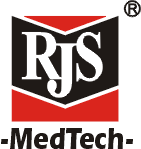This month, the National Health and Family Planning Commission (formerly the Ministry of Health) launched a three-month review of the use of high-value consumable devices and large-scale devices in China. Xinhua, the official press agency in the country, reported that inspections of hospitals over the past few months have revealed the unnecessary use of these devices in patient care, at times for the purpose of inflating the hospital¨s profits. The review will consist of tracking the price and model of devices used by patients, as well as further inspections of hospitals to determine whether they have implemented procedures for the procurement and management of these devices.
A report has also surfaced that the Ministry of Commerce¨s anti-monopoly bureau is collecting pricing information from medical device manufacturers that market products in China. Although the Chinese government has not launched a formal investigation into the industry, the anti-monopoly bureau has commissioned a detailed questionnaire that asks companies to report the value of imported goods, the price at which companies sold to distributors, whether the companies planned to raise or lower prices, information on product volumes and quality, sales techniques, workforce size, and production costs. The China Association for Medical Devices Industry (CAMDI), the state-sponsored medical device trade association in China, issued a statement this week disputing any involvement in the review and questioned whether any organization had received instruction from the Ministry of Commerce to collect the information. The Reuters story that broke the news of this review cites CAMDI¨s deputy director for international cooperation as a source discussing the questionnaire and review.
The medical device industry joins a range of multinational corporations in other sectors facing scrutiny from the Chinese authorities for charges relating to bribery, price fixing, and data security. This expanding web of investigations includes other life sciences companies doing business in China. In early August, the Chinese government fined six infant milk formula companies a total of $110 million after the National Development and Reform Commission (NDRC) conducted a four-month probe into the industry for antitrust violations. A number of pharmaceutical companies face allegations from Chinese authorities and whistleblowers alleging that the companies have provided kickbacks to healthcare providers in exchange for prescriptions of the company¨s products (see here, here, here, and here). The State Administration for Industry and Commerce has also announced a three-month investigation of the pharmaceutical and medical services industries targeting bribery, fraud, and other anti-competitive business practices.
These investigations highlight the need to have a robust compliance system in place that accounts for the unique challenges of the Chinese market.

